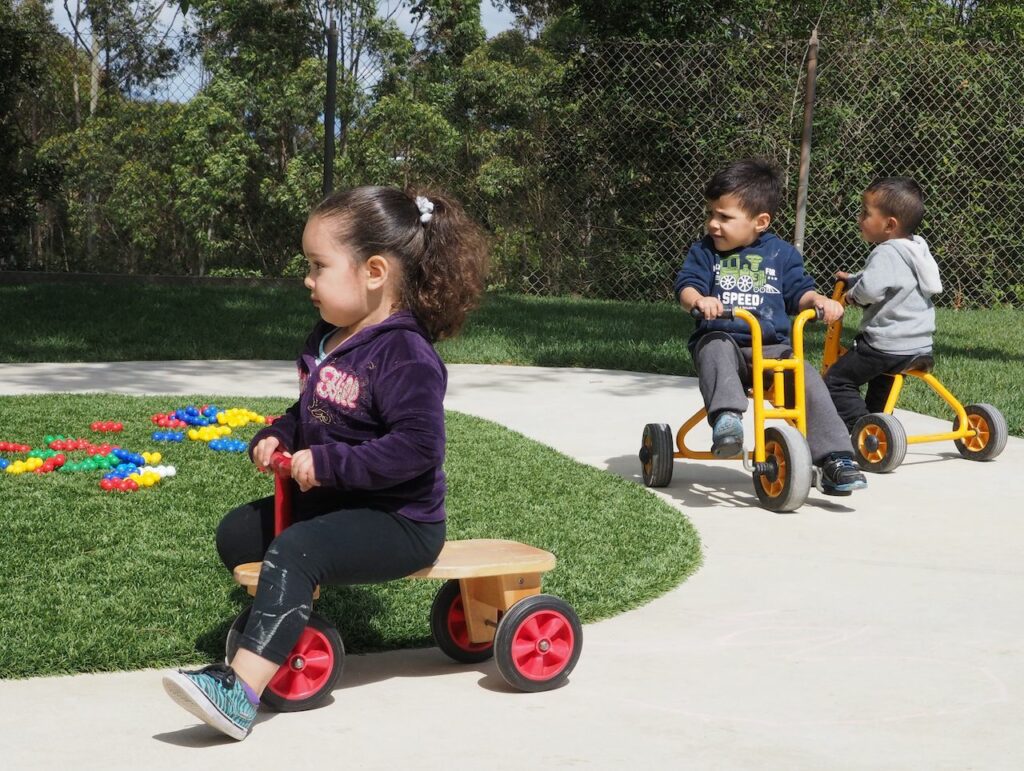
Black teachers: How to recruit them and make them stay

Lessons in higher education: What California can learn

Keeping California public university options open

Superintendents: Well-paid and walking away

The debt to degree connection

College in prison: How earning a degree can lead to a new life

This past March marked the two-year anniversary of unprecedented and necessary actions to stop the spread of Covid-19. Now, as we contemplate how to live with and move beyond the virus, it is time to focus on recovery, especially for those most impacted by the pandemic.
For California’s children, families, and our state’s economy, that recovery absolutely hinges on the availability of child care.
Life with masks, social distancing and swabbed noses are all our young children have known. Social interaction and play — which are critical to child development — were vastly limited throughout the pandemic, especially during Covid surges. We are now seeing how isolation and stress have contributed to developmental setbacks and behavioral challenges.
When families suffer, children suffer, and the pandemic inflicted tremendous hardship on our working families. It also aggravated existing challenges, such as finding affordable, accessible child care. The average family in California would need to spend over 40% of their income (or over $28,000 per year) to pay for care for two children, according to the Economic Policy Institute.
Access to child care affects our labor market and economy. In a national survey, 71% of parents reported that trouble finding child care affected their ability to work. Moreover, 2.3 million women left the workforce during the first year of the pandemic, often to take care of children, dealing an enormous blow to women’s progress in the workplace.
Child development and care experts, parent groups and economic development agencies all agree: California needs more affordable child care options. That’s why I authored Senate Bill 976 to create the state’s first universal preschool program for all 3- and 4-year-olds. It would expand access to child care and empower parents to choose the best care options that meet their child’s needs and their own work schedules, as well as their cultural and community preferences.
Last year, the governor signed SB 130, which authorized universal transitional kindergarten — or TK — at public schools. TK is free for all families with a 4-year-old regardless of income level. But what happens to the children who are not developmentally ready to enter an academic school-based setting at age 4? Or families with full-time working parents, for whom a half-day TK program is not compatible with child care needs?
SB 976 would build on universal TK by establishing universal preschool to allow children and families to continue at community-based programs that meet their unique and varying needs. In addition to meeting families where they are, it’s more economical: community care providers can provide full-day, full-year care for a lower cost than the cost of part-day, part-year care at public schools.
There is funding in the 2022-23 state budget to begin planning for a rollout of universal preschool, which would start with low-income children first. Additional federal money is expected that would support eventual expansion to all children ages 3 and 4.
The bill will also help keep our precarious child care system afloat. Currently, 4-year-olds and their families help child care providers subsidize the cost of the most expensive children to care for: infants and toddlers. Without 4-year-olds in community-based child care settings, the cost of infant and toddler care will skyrocket, and many providers may even close.
Gov. Gavin Newsom has championed expanded access to child care, paid family leave, developmental screenings, basic and essential needs, and much more, during his tenure.
And yet, child care still remains out of reach for far too many. California’s working families need more early learning and care opportunities across all settings — school campuses, community-based programs and family child care homes — in order to access it. And our child care providers, already stretched thin, need the rug to stay under their feet.
There is no more critical time than now to invest in our young children and the people who nurture them.
•••
Connie Leyva, D-Chino, is a member of the California state Senate and chairs the Senate Education Committee.
The opinions in this commentary are those of the author. If you would like to submit a commentary, please review our guidelines and contact us.

A bill to mandate use of the method will not advance in the Legislature this year in the face of teachers union opposition.

Nearly a third of the 930 districts statewide that reported data had a higher rate of chronic absenteeism in 2022-23 than the year before.

The move puts the fate of AB 2222 in question, but supporters insist that there is room to negotiate changes that can help tackle the state’s literacy crisis.

In the last five years, state lawmakers have made earning a credential easier and more affordable, and have offered incentives for school staff to become teachers.
Comments
Comments Policy
We welcome your comments. All comments are moderated for civility, relevance and other considerations. Click here for EdSource's Comments Policy.